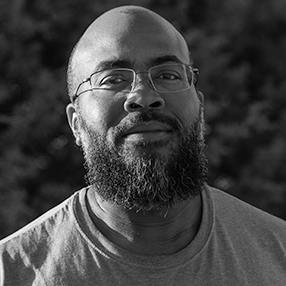The White-headed Woodpecker
Quiet. Given to prying more than pecking, an odd member
of the family, lives only in the high pine forests of western
mountains like the Cascades, where I spent an afternoon
almost a decade ago in Roslyn, Washington looking for what
I could find of Black people who’d migrated from the South
almost a century and a quarter prior. The white-headed
woodpecker doesn’t migrate and so is found in its
home range year-round when it can be found. Roslyn,
founded as a coal mining town, drew miners from all over
Europe—as far away as Croatia—across the ocean, with
opportunities. With their hammering and drilling to extract
a living, woodpeckers could be considered arboreal miners.
A habitat, a home range, is where one can feed and house
oneself—meet the requirements of life—and propagate.
In 1888, those miners from many lands all in Roslyn came
together to go on strike against the mine management.
And so, from Southern states, a few hundred Black miners
were recruited with the promise of opportunities in Roslyn,
many with their families in tow, to break the strike. They
faced resentment and armed resistance, left in the dark
until their arrival, unwitting scabs—that healing that happens
after lacerations or abrasions. Things settled down as they do
sometimes, and eventually Blacks and whites entered a union
as equals. Black save for a white face and crown and a sliver
of white on its wings that flares to a crescent when they
spread for flight, the white-headed woodpecker is a study
in contrasts. Males have a patch of red feathers
on the back of their crowns, and I can’t help but see blood.
Copyright © 2021 by Sean Hill. Originally published in Poem-a-Day on November 19, 2021, by the Academy of American Poets.
“This poem exists because I was invited to write a poem about the white-headed woodpecker for the forthcoming anthology Cascadia: A Field Guide through Art, Ecology, and Poetry. This poem exists because I’m a Southern Black man who’s called other parts of the country home. This poem exists because I’m always looking for some kind of lineage in those places. This poem exists because I like to watch birds be themselves in the world.”
—Sean Hill

